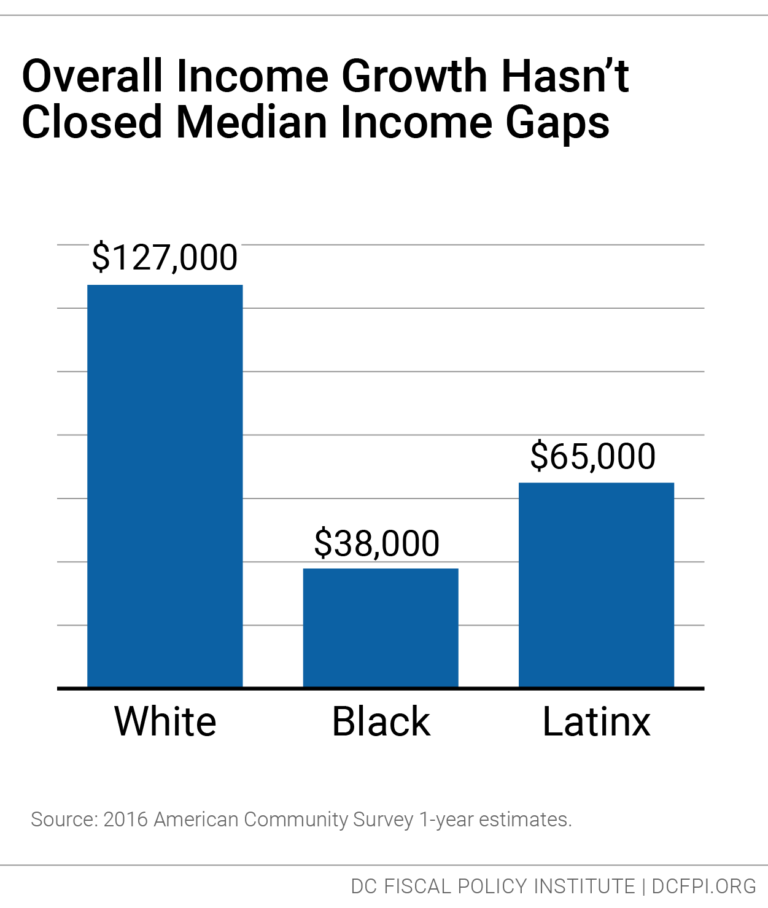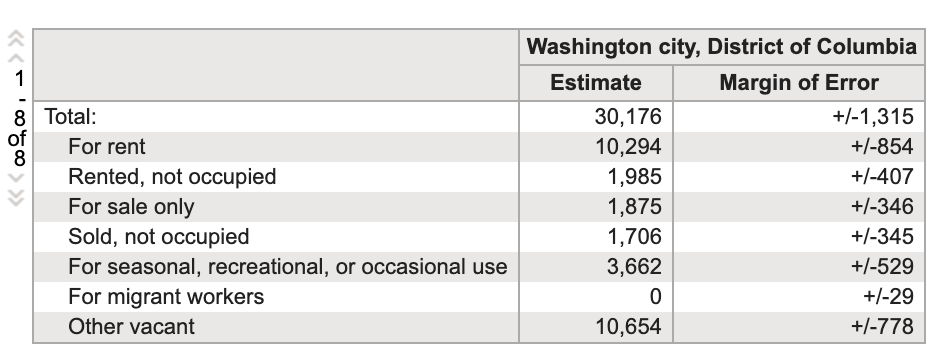In a recent post to a popular DC listserve, there was this comment:
A new ADU (and ADUs at scale) will “contribute to affordability” in terms of adding supply, and thereby reducing the overall pressure for price appreciation and the concomitant pressure to convert existing lower priced housing to standards and expectations which satisfy higher priced segments of the market.
Richard Layman rlaymandc@yahoo.com, Saturday, February 1, 2020, Comment on Columbia Heights listserve columbia_heights@yahoogroups.com
The above intriguing comment seems to not consider the concept that #HousingIsNotACommodity and rather #HousingIsAHumanRight . . . right?
Moreover, the lack of a race and class analysis in pubic discussions around housing and jobs at this point is frustratingly maddening. Essentially, one can enjoy a “LIVABALE WALKABLE” city only if you are young, professional, single, and likely white.
Going to the facts spells that housing is a human need not a product and exposes this false sense that supply of any new housing relieves some kind of “pressure.”
First, let’s take a gander at the Income Gap analysis vis-a-vis housing costs in the City:
* https://www.washingtonpost.com/news/local/wp/2016/11/02/net-worth-of-white-households-in-d-c-region-is-81-times-greater-than-black-households/
* https://www.dcfpi.org/all/economic-inequality-in-dc-reflects-disparities-in-income-wages-wealth-and-economic-mobility-policy-solutions-should-too/

This means the posture of continuing to construct more and more of the status quo unaffordable housing for single wealthy professionals without an equally important push for getting longtime DC residents and Black families real jobs with real pay to be able to stay here during the modern day goldrush is simply ignorant and discriminatory.
And, even if policy makers and the Mayor could wrangle some economic systems that actually helps longtime DC residents and families, there’s no way they will be implemented in a timely way to keep up or be substantial enough to help most people becoming more and more vulnerable to displacement.
The HOT real estate market in DC is appreciating way too fast for most folks to keep up with rents, taxes, and housing costs generally:
* https://dc.curbed.com/washington-dc-market-reports
* https://www.bizjournals.com/washington/news/2019/09/04/as-d-c-area-housing-market-booms-researchers-warn.html
Bottom-line, given the absolute real estate fire of the last decade and construction of tens of thousands of unaffordable single professional housing, there is absolutely no excuse that anyone should be pushing the idea that constructing any housing type at any cost is ok without a race and class analysis, especially considering the ballyhoo’d equitable development as expressed in Comp Plan Framework changes.
MORE FACTS THAT DISPEL SUPPLY & DEMAND MYTH:
NEW UNITS DON’T BRING PRICES DOWN
The DC Zoning Chair suitably explains as follows:
Tens of thousands of new largely luxury studios/1bedrooms have been built in DC, but prices keep going up and up and up:
* https://twitter.com/ecoylogy/status/1224692194277298179
* https://www.vice.com/en_us/article/z3bnme/tons-of-new-apartments-are-being-built-that-almost-no-one-can-afford
“An increased supply and pipeline are not interrupting rent growth.” pic.twitter.com/BKzx0nDyuR
— Coy McKinney 👨🏾🌾🏴 (@ecoylogy) January 30, 2020
DC POPULATION GROWTH SLOWING DOWN
The influx of DC newcomers (old rhetoric: 1,000 new people a month as routinely expressed by Council Chairman Phil Mendelson) has become a trickle now, and in some months there’s more a net exit of people.
https://wamu.org/story/19/01/30/the-reason-d-c-s-once-dramatic-population-growth-is-slowing-down-and-why-thats-not-so-bad/
WE MUST ACCOUNT FOR THE CURRENTLY VACANT UNITS IN THE CITY
So what of the 30,000 vacant units according to the census, where the vacancy information gathered by the American Housing Survey (AHS) conducted biennially by the U.S. Census (more info about the survey below) shows this:

This table (B25004) represents the 5-year estimate from the AHS for Washington, D.C. This timeframe reflects 60 months of collected data and is the most reliable metric for estimating how many housing units fall into each of these categories. There are also 1-year and 3-year estimates, explained here. The Metropolitan Statistical Area (MSA) is the smallest level at which the survey reports data.
The substantial numbers of vacant units demonstrate how much foreign investment capital is parking itself in these new luxury buildings:
https://www.bisnow.com/washington-dc/news/capital-markets/foreign-investment-in-dc-expected-to-increase-next-year-102315
Empty units do not create successful inclusive DC communities.
The biggest purveyors of the supply & demand myth are the so-called urbanists — largely white single professionals moving back into the cities after their grandparents and parents failed suburban experience, or their cohorts from the mega-real estate industry.
We’ve asked them to publicly debate these issues openly: David Alpert, Alex Baca, and Cheryl Cort.
* https://ggwash.org/about/staff-board
* https://www.smartergrowth.net/about/contactstaff/
In conclusion:

